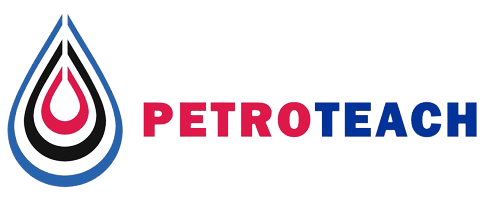RES 435
An Integrated Approach to PVT and Phase Behavior of Reservoir Fluids
This course is designed to provide the audience with classical and novel approaches in phase behavior studies of reservoir fluids.


This course is designed to provide the audience with classical and novel approaches in phase behavior studies of reservoir fluids.

| Code | Date | Location | price (€)* |
|---|---|---|---|
| RES 435 | 4 - 6 Nov 2025 | Online | 1590 |
| RES 435 | 3 – 5 Jun 2025 | Online | 1590 |
| RES 435 | 8 – 10 May 2025 | Istanbul | 2990 |
| RES 435 | 5 – 7 Aug 2025 | Dubai | 2990 |
* Prices are subject to VAT and local terms. Ph.D. students, groups (≥ 3 persons) and early bird registrants (8 weeks in advance) are entitled to a DISCOUNT!
This course is designed to provide the audience with classical and novel approaches in phase behavior studies of reservoir fluids. The course starts with an overview of reservoir fluids and their classification. The audience will become familiar with the role of PVT phase behavior in upstream field development plan and downstream process design.
Then, the challenges and errors associated with fluid sampling are reviewed. A detailed Quality check (QC) of collected fluid samples from subsurface and surface is presented and discussed, and a unified approach is presented for sampling and recombination of gas condensate samples to obtain a representative reservoir fluid. Next, PVT correlations and Physical property estimation methods are reviewed for black oil and compositional fluid samples. After that, the material balance of PVT tests are reviewed and several real-world, field examples will be presented and discussed. Following a review of heavy-end fluid characterization and EOS tuning, a systematic approach towards fluid characterization and equation of state (EOS) tuning is presented with worked examples.
o General reservoir fluid classifications
o Overview of PVT test methods: CVD, CCE, DL, Flash, etc.
o An overview of the PVT phase behavior and its importance in the upstream and downstream process design
o Challenges and Errors associated with Sampling and Recombination of Gas Condensate Fluids
o A Unified Approach for Quality Control (QC) of Drill Stem Test (DST) and PVT Data
o PVT correlations and Physical property estimation: Black oil and Compositional o Forward- and Backward-material balance of CVD Data
o The challenge of negative material balance
o Intelligent methods in PVT analysis
o Worked examples
o Fluid Characterization: from classical to novel approaches o Equation of State Tuning: State-of-the-Art approach
o Integrated Characterization and a Tuning Strategy for the PVT Analysis of Representative Fluids
o Impact of fluid characterization in the reservoir compositional gradient
o Worked examples

Professor Reza Azin is a senior lecturer and researcher in Reservoir and Chemical Process Engineering having more than 20 years of teaching and consultation experience in the university and industry. He is an expert in oil and gas reservoir, underground gas storage, PVT analysis and modeling, surface facility design, carbon management, and process simulation. His current research and industrial activities include, among others, carbon capture and sequestration (CCS), energy and exergy analysis in process industries, developing novel biomaterials for EOR, the flow of fluids through porous media, and chemical process simulation and optimization. He is also focusing on entrepreneurship and start-up development, as well as business models, team development, and commercialization in the oil and gas sector. He has supervised more than 40 masters and PhD theses and dissertations, published more than 75 journal papers and presented more than 45 conference papers. His books include The Vapor Extraction (VAPEX) Process in Heavy Oil Fractured Systems and Simulation Study of Underground Gas Storage.
o Fresh graduate, newly employed petroleum and reservoir engineers
o Senior petroleum and reservoir engineers
o Chemical Engineers
o Petroleum and Gas administrative
o General reservoir fluid classifications; An overview of the PVT phase behavior and its importance
in the upstream and downstream process design Overview of PVT test methods: CVD, CCE, DL, Flash, and etc.
o Challenges and Errors associated with Sampling and Recombination of Gas Condensate Fluids; A
Unified Approach for Quality Control (QC) of Drill Stem Test (DST) and PVT Data
o PVT correlations and Physical property estimation: Black oil and Compositional
o Forward- and Backward-material balance of CVD Data
o Fluid Characterization: from classical to novel approaches
o Equation of State Tuning: State-of-the-Art approach; Integrated Characterization and a Tuning Strategy for the PVT Analysis of Representative Fluid
Registration is now OPEN!
* Prices are subject to VAT and local terms. Ph.D. students, groups (≥ 3 persons) and early bird registrants (8 weeks in advance) are entitled to a DISCOUNT!
For more details and registration please send email to: register@petro-teach.com
Would you like a PetroTeach training course delivered at a time or location to suit you?
click for request in house